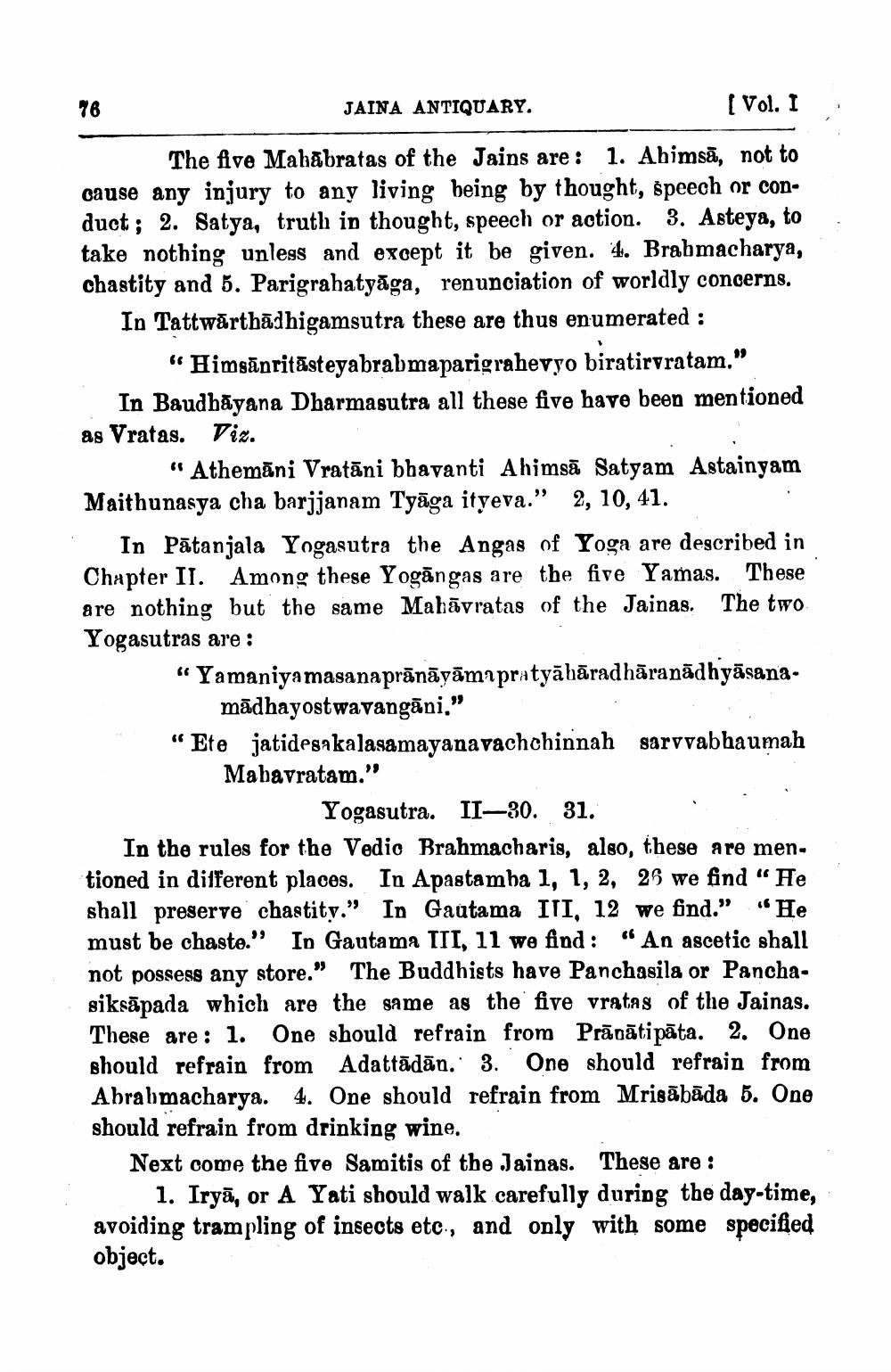________________
76
JAINA ANTIQUARY.
[Vol. I
The five Mahabratas of the Jains are: 1. Abimsā, not to cause any injury to any living being by thought, špeech or conduot; 2. Satya, truth in thought, speech or action. 3. Asteya, to take nothing unless and except it be given. 4. Brabmacharya, chastity and 5. Parigrahatyāga, renunciation of worldly concerns. In Tattwārthādhigamsutra these are thus enumerated :
“ Himsānritasteyabrabmaparigrahevyo biratirvratam." In Baudhāyana Dharmasutra all these five have been mentioned as Vratas. Viz.
"Athemāni Vratāni bhavanti Ahimsā Satyam Astainyam Maithunasya cha barjjanam Tyāga ityeva.” 2, 10, 41.
In Patanjala Yogasutra the Angas of Yoga are described in Chapter II. Among these Yogāngas are the five Yamas. These are nothing but the same Mahāvratas of the Jainas. The two Yogasutras are :
“Yamaniya masanaprānāyāmıpratyābāradhāranādhyāsana
mādhayostwavangāni." “Ete jatidesakalasamayanavachchinnah sarvvabhaumah Mahavratam."
Yogasutra. II—30. 31. In the rules for the Vedio Brahmacharis, also, these are men. tioned in different places. In Apastamba 1, 1, 2, 26 we find " He shall preserve chastity." In Gautama III, 12 we find." "He must be chasto." In Gautama III, 11 we find: “An ascetic shall not possess any store." The Buddhists have Panchasila or Pancha. siksāpada which are the same as the five vratas of the Jainas. These are: 1. One should refrain from Prādāti pāta. 2. One should refrain from Adattādān. 3. One should refrain from Abrahmacharya. 4. One should refrain from Mrisābāda 5. One should refrain from drinking wine. Next come the five Samitis of the Jainas. These are :
1. Iryā, or A Yati should walk carefully during the day-time, avoiding trampling of insects etc., and only with some specified object.




